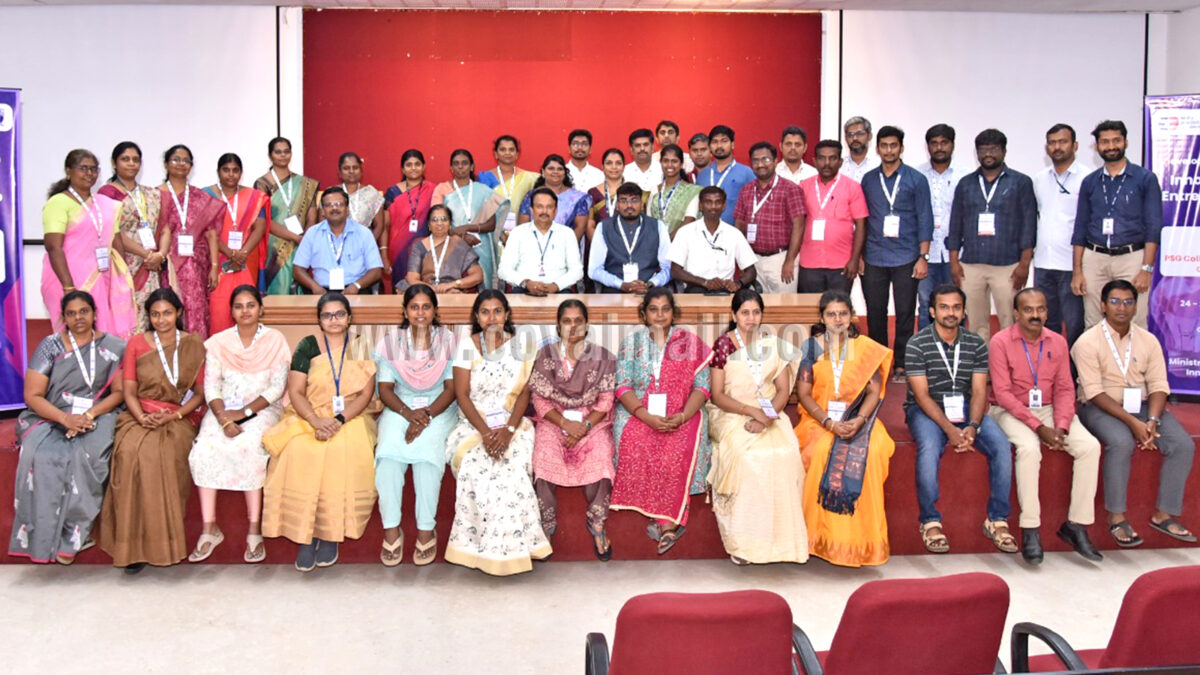The Institution’s Innovation Council of PSG College of Technology conducted a Faculty Development Programme (FDP) on Innovation & Entrepreneurship, organized by AICTE and the Ministry of Education’s Innovation Cell (MIC), recently.
The FDP was designed to empower educators to mentor and support student and faculty-led innovation projects and startup ideas.
Prakasan, Principal of the college, in his presidential address, emphasized the significance of innovation in education, urging faculty to mentor aspiring entrepreneurs. Sriram Sankaran, Chairman and Managing Director, Synchron Group, insisted that the faculty members should actively promote entrepreneurship by encouraging students to think independently and take ownership of their ideas.
A total of 36 faculty participants from various Higher Education Institutions took part in the FDP. The sessions actively engaged participants, beginning with fostering an entrepreneurial mindset in students and progressing through customer discovery, business model creation, market research, and intellectual property protection.
Hands-on activities encouraged collaborative learning, allowing participants to apply concepts in practice.
The event concluded with faculty members sharing their best practices, outlining the action plan, and highlighting key takeaways from the FDP.
The valedictory function was presided over by Krishnamoorthi, Head, Department of Metallurgy, who commended the participants for their active engagement and emphasized that such programs pave the way for the effective integration of entrepreneurial education in academic institutions.
The FDP provided a platform for knowledge exchange, networking, and skill enhancement, equipping faculty members with the necessary tools to mentor and guide students in their entrepreneurial journey.
The event concluded by expressing gratitude by the participants for the insightful sessions and the opportunity to collaborate with peers. Feedback from the attendees highlighted the program’s effectiveness in bridging the gap between theoretical concepts and real-world applications.




